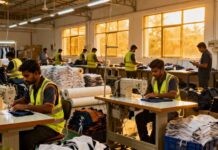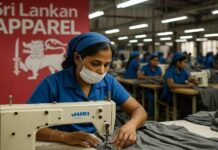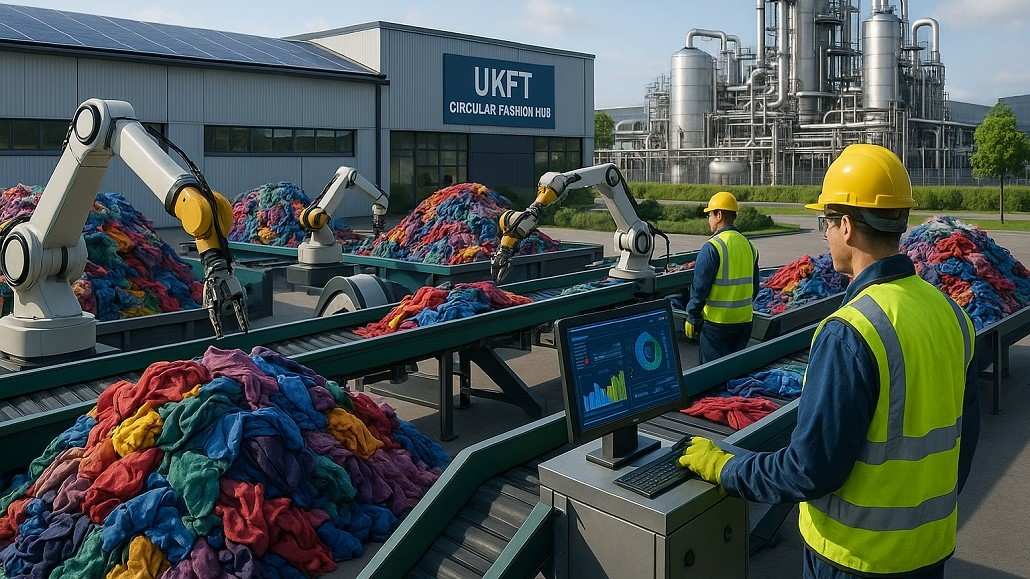The UK Fashion and Textile Association (UKFT) has unveiled a comprehensive plan to create a national textile recycling hub in the UK, which promises significant economic and environmental benefits for the fashion industry.
This initiative, outlined in a report by Oxford Economics, aims to address both societal and financial challenges associated with textile waste. Central to the proposal are three Automated Textile Sorting Plants (ATSPs) and a chemical recycling facility, which will be strategically located throughout the UK.
The ATSPs are set to be distributed across the East Midlands, North West, and South West regions, while the chemical recycling plant will be established in the East Midlands. These state-of-the-art sorting facilities will employ sophisticated automated technology to efficiently sort textile waste based on fiber type and quality.
The chemical recycling facility will enable closed-loop processes, particularly focused on recycling polyester and potentially other synthetic fibers. Once fully operational, the sorting plants are expected to redirect around 150,000 tonnes of textile waste away from landfills and incineration each year. Of this total, 50,000 tonnes will be transformed into new clothing fibers through chemical recycling, while the remaining 100,000 tonnes will be processed using various textile recycling methods.
The UK currently faces a pressing issue with approximately one million tonnes of used textiles discarded annually. Alarmingly, a third of this waste is considered non-rewearable, leading to disposal through landfills, incineration, or export, at an estimated cost of £200 million each year.
The proposed recycling hub could alleviate some of these financial burdens, potentially saving over £24 million annually by reducing landfill and incineration costs.
Development of the hub is scheduled to begin in 2025, with a completion target of 2028. The chemical recycling facility is projected to launch in phases, aligning with the operational timelines of the ATSPs, aiming for full functionality by 2031.
UKFT estimates that the construction of the hub will create approximately 220 direct job years, with a further 400 job years anticipated when considering indirect and induced employment impacts. During the three-year construction period, the hub could contribute £46 million to the gross value added (GVA), including £20 million directly from the site development.
Once the hub is fully operational, it is expected to sustain around 720 jobs and add an estimated £53 million annually to the UK’s GDP.
This initiative forms a key part of the Circular Fashion Innovation Network (CFIN), spearheaded by UKFT alongside the British Fashion Council (BFC) and UK Research and Innovation (UKRI). CFIN focuses on critical areas such as enhancing recycling infrastructure and advocating for sustainable manufacturing practices. This effort complements the ACT UK project, which endeavors to create a practical model for an ATSP within the UK.

































